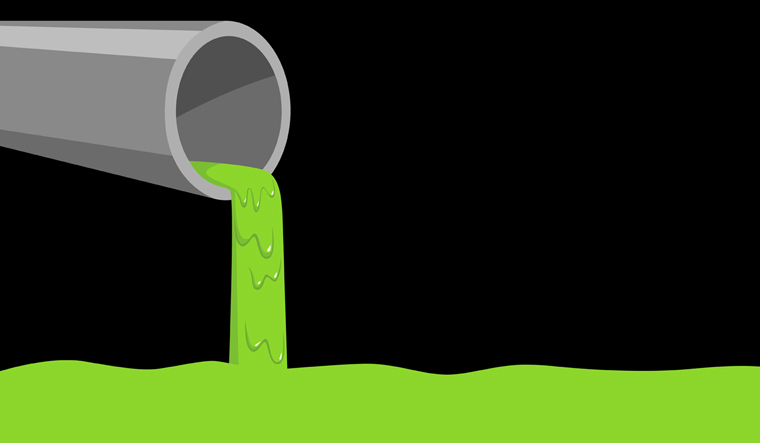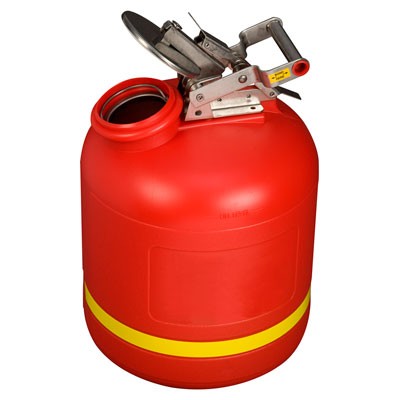Specialist Liquid Waste Removal Melbourne: Keeping Your Setting Clean
Specialist Liquid Waste Removal Melbourne: Keeping Your Setting Clean
Blog Article
Understanding the Comprehensive Process of Liquid Garbage Disposal: Ideal Practices and Environmental Influence Factors To Consider
The monitoring of liquid waste disposal is a diverse problem that needs a detailed understanding of various ideal practices and their linked environmental impacts. From the kinds of liquid waste created to the approaches employed for collection, treatment, and final disposal, each step plays a crucial function in guarding ecosystems and public health and wellness.
Kinds Of Fluid Waste
Understanding the different kinds of fluid waste is vital for efficient administration and disposal practices. Liquid waste can be broadly classified right into a number of kinds, each needing unique handling and treatment approaches.
Industrial liquid waste typically contains unsafe materials, consisting of heavy steels, solvents, and chemicals, generated throughout producing processes. These wastes require rigorous regulative conformity to shield human wellness and the setting. Residential liquid waste mainly describes wastewater created from households, consisting of sewer and greywater, which, although much less hazardous, can still posture substantial risks if incorrectly managed.
Agricultural fluid waste, including drainage from ranches, frequently contains fertilizers and pesticides that can bring about ecological destruction otherwise dealt with adequately. Medical liquid waste, created from healthcare facilities, includes contaminated fluids such as physical fluids and chemicals, requiring specialized disposal methods to stop infection and ecological contamination.
Last but not least, oil and oil waste, generally produced by restaurants and vehicle markets, can cause severe blockages in sewer systems if not taken care of effectively. Understanding these categories facilitates targeted techniques for treatment, conformity with regulations, and reliable disposal techniques, eventually promoting environmental sustainability and public health safety and security.

Collection Approaches
Efficient collection methods are essential for the proper management of fluid waste, making sure that it is collected securely and efficiently before treatment or disposal. Various methods are employed depending on the kind of fluid waste produced, the quantity, and the details features of the waste.
One typical method is the usage of committed collection containers or sumps, which are developed to capture liquid waste at the source. These systems often include pumps that help with the transfer of waste to bigger storage containers or therapy facilities. In addition, mobile collection units outfitted with vacuum cleaner innovation are utilized in scenarios where waste is created periodically or in hard-to-reach areas.
For industrial setups, closed-loop systems can effectively minimize leakages and spills, permitting for the recuperation and reuse of fluid waste. It is additionally necessary to educate employees on proper collection protocols to alleviate risks connected with hazardous materials.
Moreover, applying regular maintenance timetables for collection tools ensures ideal performance and safety and security. The integration of advanced tracking systems can improve collection efficiency by providing real-time data on waste levels and possible threats. In general, efficient collection techniques are foundational to lasting fluid waste monitoring techniques.
Therapy Processes
Therapy procedures play an essential duty in the monitoring of liquid waste, transforming potentially harmful products into safe effluents or recyclable resources - liquid waste disposal. These procedures can be extensively categorized right into physical, chemical, and biological approaches, each customized to attend to certain pollutants present in the waste stream
Physical treatment methods, such as sedimentation and filtration, job by removing put on hold solids and particle matter. These techniques are commonly the initial step in the treatment chain, properly reducing the load on succeeding processes. Chemical treatments involve making use of reagents to neutralize unsafe materials, precipitate heavy metals, or oxidize natural contaminants, thus enhancing the safety of the effluent.
Biological therapy processes, consisting of activated sludge systems and anaerobic food digestion, capitalize on the all-natural capabilities of microbes to weaken natural issue. These techniques are particularly efficient for wastewater including naturally degradable toxins. Advanced treatment modern technologies, such as membrane purification and advanced oxidation procedures, are significantly used to achieve greater levels of purification.
Including a combination of these treatment techniques not just guarantees conformity with regulative standards but additionally advertises ecological sustainability by recovering valuable sources from fluid waste.
Disposal Options
Just how can organizations guarantee the liable and safe disposal of liquid waste? Efficient disposal alternatives are vital for protecting public health and wellness and the setting. The key approaches include land incineration, these details therapy, and disposal see here now complied with by discharge right into local wastewater systems.
Land disposal entails the mindful control of liquid waste in assigned garbage dumps, making certain that it does not seep into surrounding dirt or water. Incineration, on the various other hand, subjects liquid waste to heats, transforming it into ash and gases, which need correct filtration to minimize emissions. This approach appropriates for contaminateds materials that can not be treated through traditional ways.
In instances where fluid waste can be dealt with, organizations may select chemical or biological treatment procedures to counteract damaging elements before discharging the dealt with effluent right into metropolitan systems. This course commonly lines up with regulatory requirements, guaranteeing that the effluent meets safety criteria.
Eventually, companies need to conduct comprehensive assessments of each disposal alternative to establish its feasibility, thinking about factors such as waste make-up, governing conformity, and potential threats to health and wellness and the setting. By picking suitable disposal techniques, businesses can add to an accountable waste monitoring approach.
Environmental Effect
The ecological influence of liquid waste disposal is a vital consideration for companies looking for to decrease their ecological footprint. In addition, the discharge of untreated or inadequately treated waste into surface area waters can result in eutrophication, leading to oxygen depletion and the subsequent death of fish and other organisms.

To reduce these impacts, companies must adopt ideal techniques such as carrying out strenuous waste treatment procedures, advertising recycling and reuse, and adhering to regulatory requirements. By taking a positive technique to liquid waste monitoring, entities can significantly decrease their environmental impact while sustaining sustainable advancement goals. Ultimately, a comprehensive understanding of the ecological effects connected with fluid waste disposal is important for educated decision-making and accountable stewardship of natural deposits.
Conclusion
Effective management of fluid waste is essential for guarding environmental integrity and public health. Inevitably, a comprehensive understanding of liquid waste disposal not only minimizes environmental influences but also promotes a dedication to liable source management and environmental stewardship.
The administration of fluid waste disposal is a multifaceted problem that calls for a comprehensive understanding of different finest methods and their connected ecological influences. From the kinds of fluid waste generated to the techniques used for collection, therapy, and last disposal, each step plays a critical role in protecting communities and public health.The environmental impact of liquid waste disposal is a crucial consideration for organizations looking for to decrease their ecological footprint. Ultimately, a comprehensive understanding of the ecological effects connected with liquid waste disposal site here is vital for notified decision-making and accountable stewardship of all-natural sources.
Eventually, a detailed understanding of liquid waste disposal not only alleviates ecological impacts yet additionally promotes a dedication to liable resource management and environmental stewardship.
Report this page